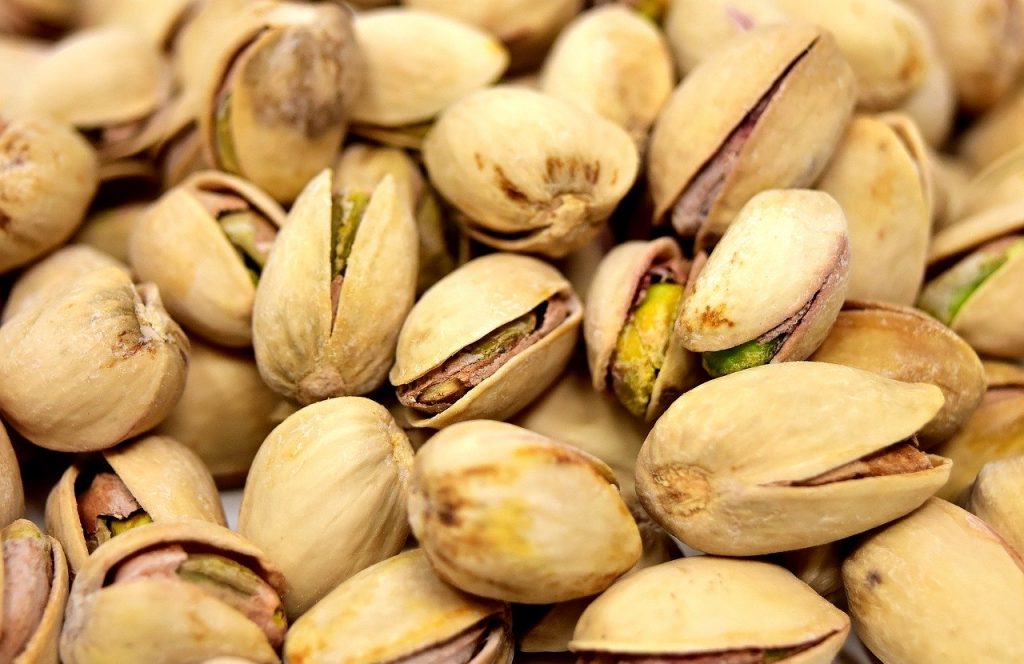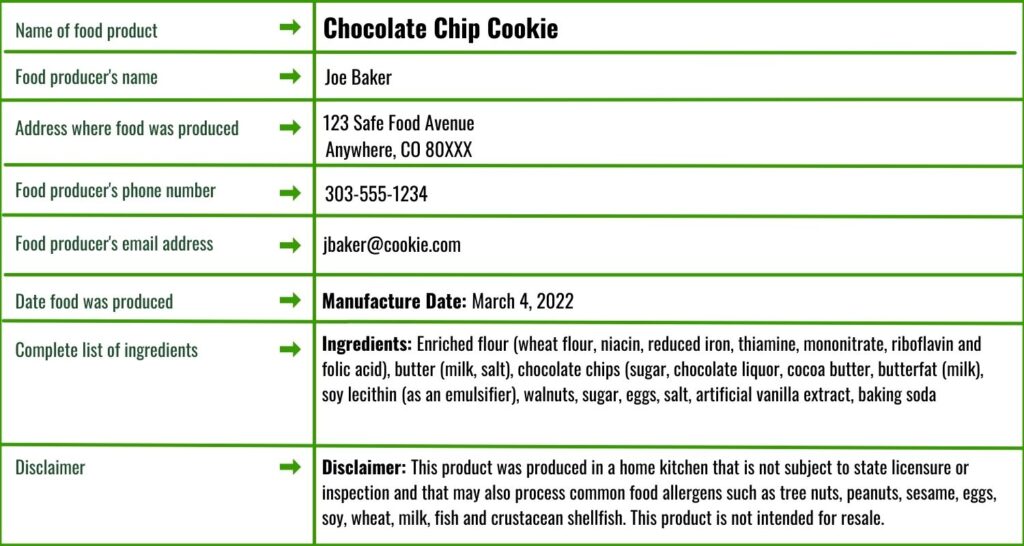Nuts and seeds from a wide variety of plant families are edible and eaten raw, roasted as snack foods, and used in baking. Nuts and seeds can be good sources of nutrients and often have high oil content. They are known for health benefits but also contain common food allergens.

Potential Products
Roasted Coffee
Coffee is actually a seed, often roasted in preparation for brewing.
Trail Mix
Combinations of nuts and seeds, sometimes with the addition of dried fruits and/or chocolate.
Roasted Nuts
Nuts roasted with salt, herbs, and/or spices, usually without added oils.
Roasted Seeds
Seeds roasted with salt, herbs, and/or spices.
Providing Safe Samples
Samples must be offered in a sanitary manner using single-use service items such as disposable napkins, toothpicks, or cups. Servers must wear a new pair of gloves when preparing samples and/or use clean utensils when handling samples. If providing any product in its prepared form, such as dip mix, precautions to maintain proper temperatures and avoid contamination must be taken. Customers must not be allowed to dip directly into products. If brewing coffee for consumers it must only be provided as a sample. Coffee can only be sold to the consumer as roasted beans, not as a prepared beverage.
Food Safety Concerns
If not roasted, dried/cured, packaged and stored properly, there is risk of contamination or rancidity of oils in raw or roasted nuts and seeds. Nuts, seeds, and coffee ‘beans’ can be infected with molds, sometimes in the field, but more commonly during improper storage. Once toxins from mold are present, they can persist through processing into the final food product and pose serious health consequences to those who consume the food or beverage with high amounts of toxin.
Three of the top 8 allergens are related to nuts and seeds: Milk, Eggs, Peanuts, Tree nuts, Soybeans, Wheat, Fish, Shellfish.
Packaging
Products must be packaged in food grade materials. All cottage food products must display the information required by the Colorado Cottage Foods Act and outlined by the Colorado Department of Public Health and Environment.
QUESTIONS:
Q: What is the shelf life of nuts?
A: Shelf life depends on the type of nut and how they are stored. Most nuts contain unsaturated fats, which can become rancid and give nuts a paint-like smell and bad taste. A general ranking of shortest to longest shelf life is: walnuts, pecans, Brazil nuts, peanuts, almonds and pistachios.
Resources
- Colorado Farm to Market: http://cofarmtomarket.com/
- CSU Extension: http://extension.colostate.edu
Colorado Cottage Foods Act
Colorado Senate Bill 12-048 allows individuals to produce, sell, and store a limited number of specific, non-potentially hazardous ‘cottage food’ products, in a home kitchen. Cottage food businesses require no license or permit from the Colorado Department of Public Health and Environment and are not inspected by any state or local government entity. Products must be sold directly by the cottage foods operator to an informed end consumer and gross sales for each product produced must not exceed $10,000 annually. Sales outside of the state of Colorado are prohibited.
Allowed Cottage Food Products in Colorado
A limited range of foods that are non-potentially hazardous and do not require refrigeration are allowed. These foods include spices, teas, dehydrated produce, nuts, seeds, honey, jams, jellies, preserves, fruit butter, flour, baked goods including candies, fruit empanadas and tortillas, and pickled fruits and vegetables.
General Labeling Requirements
A cottage food operation may only sell products offered with a label containing the following information (printed in English):

Food Safety Training
Although a cottage food kitchen does not require licensure, the producer does need to obtain food safety training. The Colorado Cottage Food Act requires “a producer must take a food safety course that includes basic food handling training and is comparable to, or is a course given by, the Colorado State University Extension service or a state, county, or district public health agency, and must maintain a status of good standing in accordance with the course requirements, including attending any additional classes if necessary.”
Trainings that CSU Extension offers include face-to-face as well as online classes, varying in length and cost. Contact your CSU Extension county office for more details: http://extension.colostate.edu. For information on class offerings near you, visit: https://foodsmartcolorado.colostate.edu/food-safety/cottage-retail-foods/.
Resources
Colorado Department of Public Health and Environment: http://cdphe.state.co.us and Colorado Farm to Market: http://cofarmtomarket.com


